Table of Contents
Mercedes M274 Engine (2012–2019)
The Mercedes-Benz M274 is a 1.6 L / 2.0 L turbocharged inline-4 for longitudinal (RWD/4MATIC) layouts, powering C-/E-/GLC-/SLC-Class. It blends direct injection, a twin-scroll turbo, and an integrated exhaust manifold for strong mid-range torque and efficiency.
While generally reliable, owners should watch thermostats, cam actuators, and a small set of piston/wrist-pin noise cases on certain years.
Exploring all engines? Start at the Mercedes Engine Types Hub.
Closely related: M270 (transverse) • Successors/peers: M264 48V • M271 (older)
Mercedes M274 Engine : Overview
The Mercedes M274 engine represents a significant evolution in automotive engineering, bringing together advanced technology and high performance. Introduced as part of Mercedes-Benz’s strategy to enhance efficiency and power, the M274 engine has become a cornerstone of the brand’s lineup.





Fast Facts
| Item | Details |
|---|---|
| Layout | Inline-4, aluminum block/head, DOHC, chain drive |
| Displacements | 1.6 L (DE16 LA) • 2.0 L (DE20 LA) |
| Induction | Twin-scroll turbo, integrated exhaust manifold |
| Injection | Direct (piezo) |
| Power/Torque | 1.6: 95–115 kW / 210–250 Nm • 2.0: 115–180 kW / 270–370 Nm |
| Emissions | Euro 5 / Euro 6 |
| Oil | 5W-30 / 5W-40 meeting MB 229.5/229.51 • Cap.: ~6.0–7.0 L |
| Typical life | ~300,000 km with good maintenance |
Variants & Model Years
| Variant | Displ. | Power | Torque | Years | Typical Models |
|---|---|---|---|---|---|
| M274 DE16 LA | 1,595 cc | 95 / 115 kW | 210–250 Nm | 2012–2019 | C-Class, SLC (market-dep.) |
| M274 DE20 LA | 1,991 cc | 115–180 kW | 270–370 Nm | 2013–2019 | C-/E-/GLC-/SLC-Class |

Reliability Snapshot
Overall good when serviced on time: strong mid-range, efficient cruising, and fewer timing complaints than older M271 thanks to its dual-row chain. Key watch-items are thermostats, camshaft actuators (pre-2014 part numbers), turbo hoses/wastegate wear, and isolated piston/wrist-pin noise reports on some 2015–2016 2.0T models.
Common Problems & Practical Fixes
| Problem | Symptoms | Check/Diagnose | Fix / Notes | DIY? |
|---|---|---|---|---|
| Thermostat failure | Overheat, temp swings, reduced power | Temp behavior, coolant leaks | Replace thermostat early; bleed cooling system | Yes |
| Camshaft actuator (solenoid) | Cold rattle, misfire codes | Noise @ 60–70k mi; scan cam phasing | Update to post-2014 part; reseal connectors | Partial |
| Timing chain stretch (infrequent) | Start-up rattle, idle clatter | Correlation checks, listen cold | Replace chain/tensioner/guides if noisy | Partial |
| Turbo wear / boost leaks | Lag, low boost, oil at joints | Pressure test, inspect hoses/wastegate | Replace cracked hoses; turbo+manifold assembly if failed | Partial |
| Piston/wrist-pin noise (select 2015–16) | Tapping/clatter, smoke, oil use | Compression/leak-down, borescope | Engine repair/replacement, TSBs/legal history | No |
Deep-dive case studies:
Check coolant level Mercedes : C-Class Case Study & Solution
Check engine light is flashing : Case Study on Mercedes
Smell of Fuel Inside Car on Mercedes C300 with M274 Engine
12V Battery Mercedes Warning : Case Study & Solution
Coolant Leak From Engine : Mercedes Case Study & Solution
Engine Mount Replacement : Save Money, Steps & Cost
Top Up Coolant See Owner’s Manual : Case Study & Solution
Engine Overheating: Easy Solution
Engine Coolant Temperature Not Displayed: Solution Here
Coolant Mixing With Engine Oil: Solution Final
P029921 Transmission Delay Shifting: Practical Solution
Coolant Reservoir Boiling And Overflowing: Solution Here
Car Turns Over But Wont Start: Process to Solution
Engine Overheating But Coolant Full: 100% Easy
Engine light on: Discover the Quick Fixes Here
Why Is My Car Overheating? Hidden Causes Explained
P06DA00 Mercedes: How to Fix y130 Oil Pump Valve
Maintenance That Prevents Headaches
- – Oil & filter: MB 229.5/229.51 every 10k mi / 16k km or 12 mo (shorten if hot climate/short trips).
- – Cooling system: Proactive thermostat; inspect water pump, hoses, radiator each service.
- – Cam actuators: Listen at 60–70k mi; fit updated parts if noisy.
- – Turbo plumbing: Annual boost-leak test, check wastegate linkage; replace aged hoses/clamps.
- – Timing set: Low failure-rate, but inspect at first rattle.
- – Spark plugs/ignition: Follow severe-duty intervals on city/short-trip use.
More information about the maintenance and services of Mercedes M274 Engine in the following link;
Service B on Mercedes C300 : Steps DIY
Specs (At-a-Glance)
- – Bore × stroke: 83 mm × 73.7 mm (1.6) • 83 mm × 92 mm (2.0)
- – Compression ratio: ~10.3:1 (1.6) • ~9.8:1 (2.0)
- – Hydraulic lifters, phase regulation (variable cam timing)
- – Fuel economy (C250 2017, ref.): 7.9 / 5.2 / 6.2 L/100 km (city/hwy/comb., market-dep.)
M270 vs M274 (What’s the difference?)
| Feature | M270 | M274 |
|---|---|---|
| Mounting | Transverse (FWD) | Longitudinal (RWD/4MATIC) |
| Typical models | A-/B-/CLA-/GLA-Class | C-/E-/GLC-/SLC-Class |
| Hardware | Very similar family | Layout-specific ancillaries/tuning |
| Feel | Compact packaging | More performance-oriented trims |
Read next: M270 (Transverse) Guide
Is the M274 a Good Engine?
Yes. It offers a balanced mix of power, economy, and refinement for daily driving. Keep on top of cooling, actuators, and boost hoses and it’s a durable companion well past 200k km.
Models Using the M274
- – C-Class (W205) — C180/C200/C250/C300
- – E-Class (W212/W213) — E200/E250
- – GLC (X253) — GLC 200/250/300
- – SLC (R172) — SLC 200/300
FAQs
Q1: Best oil for M274?
Full-synthetic 5W-30 or 5W-40 meeting MB 229.5/229.51 (confirm in your owner’s manual).
Q2: How often to change oil?
About 10k mi / 16k km or 12 months; shorten for hot climates, short trips, towing, or spirited use.
Q3: Does the M274 have timing chain issues?
Far less frequent than M271; still inspect promptly if you hear start-up/idle rattle.
Author
Written by Mercedes Expert
With years of hands-on experience diagnosing and repairing Mercedes-Benz systems, he brings technical depth and practical case studies to help car owners, technicians, and enthusiasts troubleshoot complex automotive issues. His work focuses on clear repair guides, OEM-level procedures, and knowledge-sharing to empower both professionals and drivers.
Last Updated: September 2025

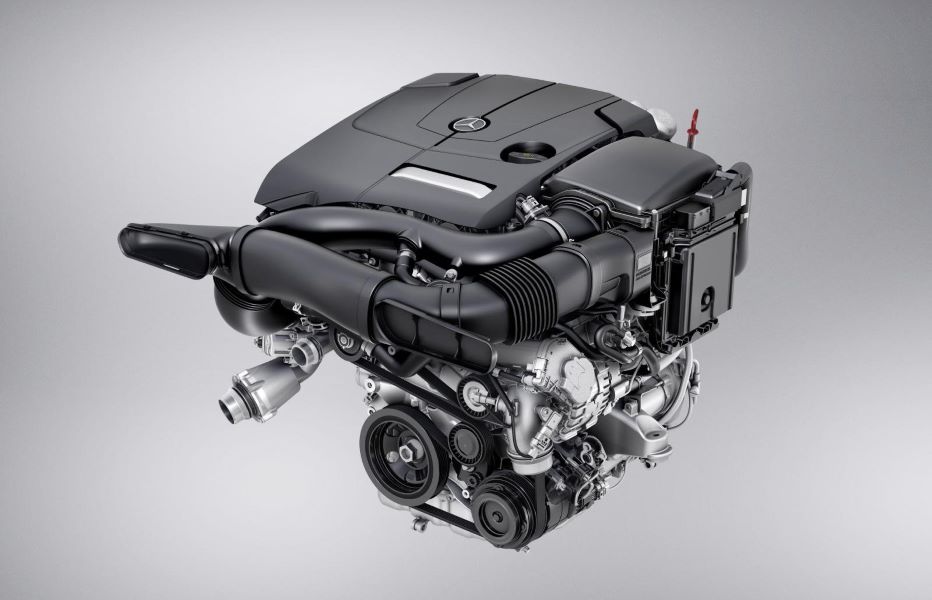


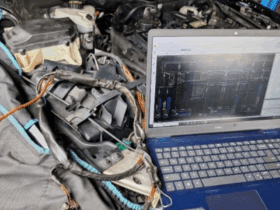
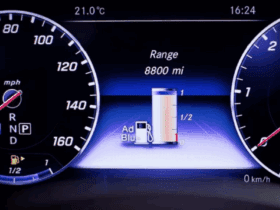
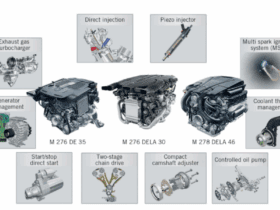
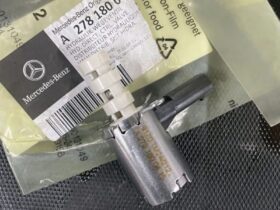
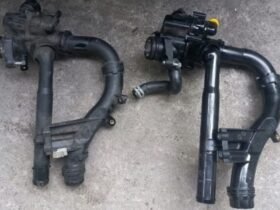
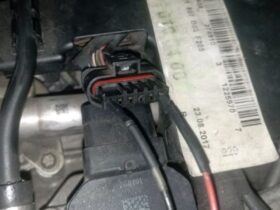
Leave a Reply